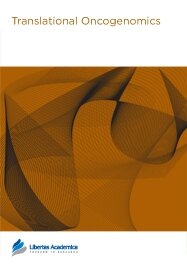

Publication Date: 28 Mar 2007
Journal: Translational Oncogenomics
Citation: Translational Oncogenomics 2007:2 17-33

The increasing number of proteomic and DNA-microarray studies is continually providing a steady acquisition of data on the molecular abnormalities associated with human tumors. Rapid translation of this accumulating biological information into better diagnostics and more effective cancer therapeutics in the clinic depends on the use of robust function testing strategies. Such strategies should allow identification of molecular lesions that are essential for the maintenance of the transformed phenotype and enable validation of potential drug-targets. The tetracycline regulated gene expression/ suppression systems (Tet-systems) developed and optimized by bioengineers over recent years seem to be very well suited for the function-testing purposes in cancer research. We review the history and latest improvements in Tet-technology in the context of functional oncogenomics.
PDF (1.18 MB PDF FORMAT)
RIS citation (ENDNOTE, REFERENCE MANAGER, PROCITE, REFWORKS)
BibTex citation (BIBDESK, LATEX)
XML
PMC HTML

As an author of a review published in Translational Oncogenomics, I was impressed by the prompt processing and speed of publication. The entire submission, review and publication process was easy, quick and pleasant. The comments from reviewers and associate editor were high quality, scientifically deep and objective. It was a great pleasure to cooperate with such qualified and friendly team. I highly recommend publication in Libertas Academica journals.
Facebook Google+ Twitter
Pinterest Tumblr YouTube